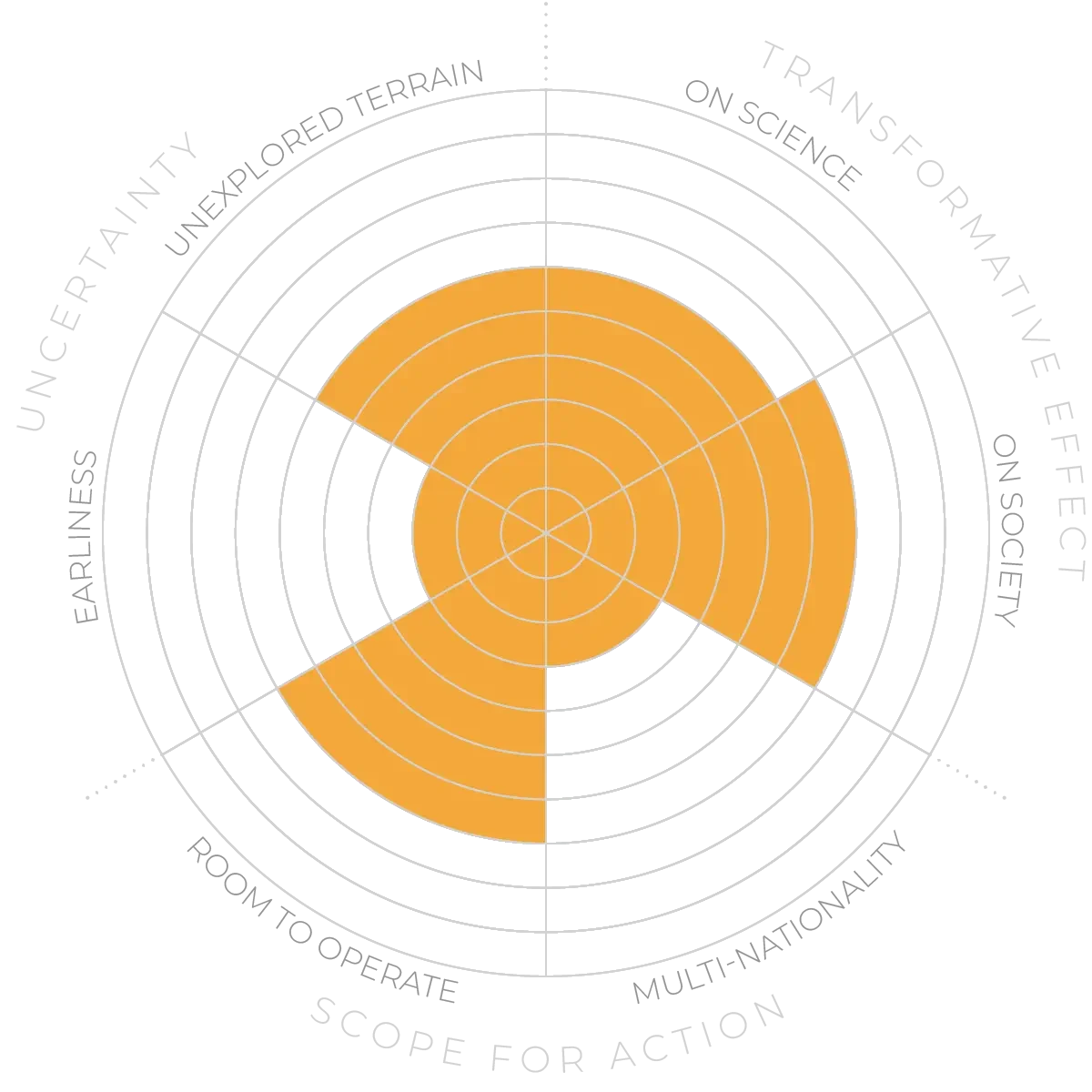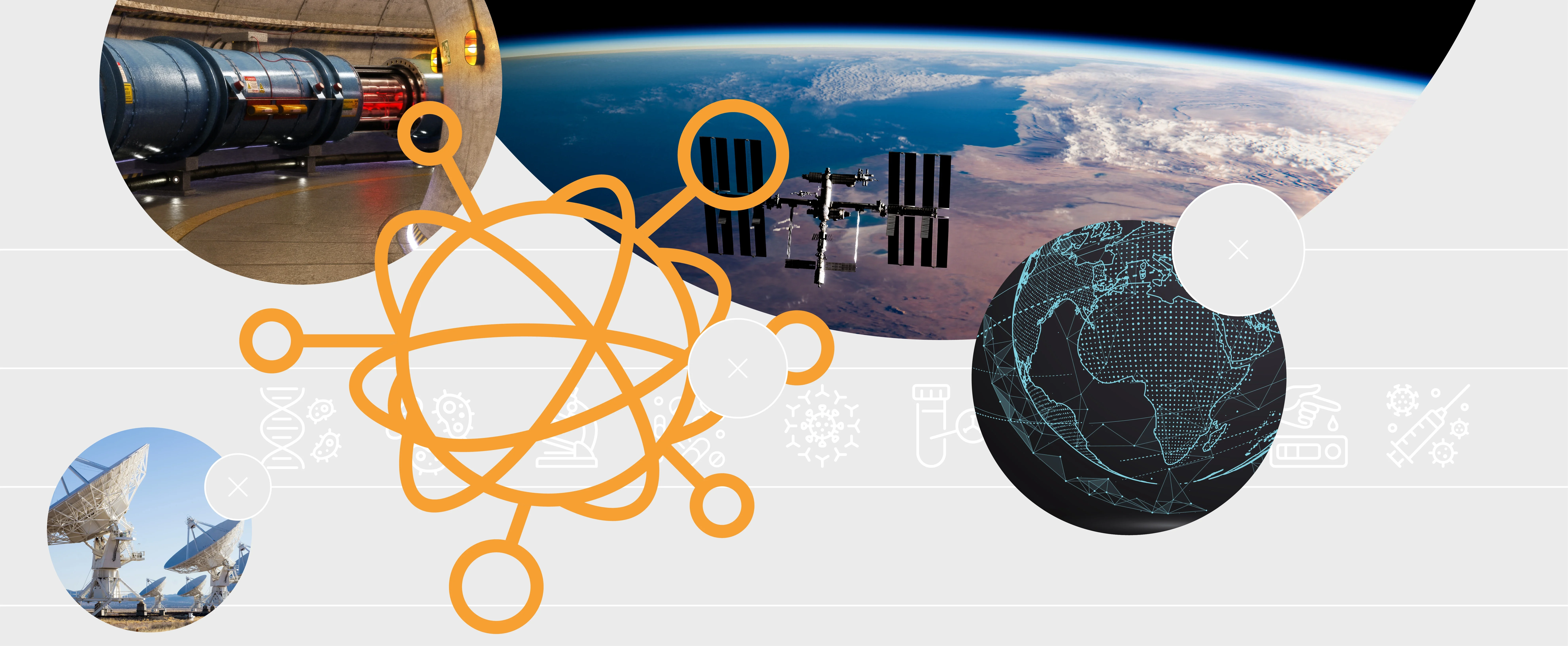Future Horizons:
10-yearhorizon
Trained science diplomats are spread through relevant organisations
25-yearhorizon
Emerging economies gain increasing influence over Big Science
There are, however, significant collaborations that involve exclusively emerging economies. Intergovernmental science organisations such as the African Lightsource, the Synchrotron-Light for Experimental Science and Applications in the Middle East (SESAME) — a joint undertaking of Israel, the Palestinian Territories, Egypt, Jordan, Iran, Pakistan, Turkey and Cyprus — and the Latin American and Caribbean Space Agency are all good examples of nations with emerging economies engaging in multilateral science diplomacy on their own terms.
The value of such endeavours in establishing credentials for global engagement is clear from South Africa’s success with the Square Kilometre Array (SKA), a radio-telescope project that is showcasing the nation’s science and engineering talent, creating programmes to further develop its human capital and burnishing its reputation as a rising power on the world economic and intellectual stage. Although there are hurdles to overcome, there are clear reasons to encourage and pursue more such inclusive collaborations between countries of differing economic means.8 At the same time, more and more emerging economies are taking an interest in science diplomacy as a means of moving towards greater scientific and technological development
Science diplomacy and emerging economies - Anticipation Scores
The Anticipation Potential of a research field is determined by the capacity for impactful action in the present, considering possible future transformative breakthroughs in a field over a 25-year outlook. A field with a high Anticipation Potential, therefore, combines the potential range of future transformative possibilities engendered by a research area with a wide field of opportunities for action in the present. We asked researchers in the field to anticipate:
- The uncertainty related to future science breakthroughs in the field
- The transformative effect anticipated breakthroughs may have on research and society
- The scope for action in the present in relation to anticipated breakthroughs.
This chart represents a summary of their responses to each of these elements, which when combined, provide the Anticipation Potential for the topic. See methodology for more information.



